Taking time out from busy organising at the last Uncivilisation festival, Dougie Strang shared some of his reflections on the Dark Mountain Project with me over a cup of coffee and breakfast. We delved into the role of art and creativity in moving beyond despair. He generously agreed to elaborate on some of these thoughts and share our conversation here. I feel his last point touches directly on something I’ve been thinking about for a while now: the futility of striving. Falling into thinking we should be doing or thinking differently is a subtle way of removing ourselves from the present. Perhaps ‘more welcoming fires’ are an antidote to this. From my viewpoint of having had quite a lot of these conversations, it seems like the conversations are almost beginning to speak to each other. As Dougie remarked: “It’s the kind of conversation where really there’s so much more that could be said…” I’m beginning to feel a thread connecting all these thoughts in a fine web that are part of a wider picture. Many thanks to Dougie for agreeing to be part of this wider conversation!
JDG: You told me yesterday a little bit about how you came to Dark Mountain, maybe we can start there?
DS: Well, I read an article by Dougald in the Guardian. Paul had already set out Dark Mountain’s stall in a previous article, and George Monbiot had responded and there’d been a bit of a tit for tat. But I didn’t know about that at the time, so Dougald’s article was the first I’d heard of the project. It linked to the website and mentioned the festival in Llangollen in Wales. And for some reason it just clicked for me and I really wanted to find out more about it.
I was at a stage where I had been reading a lot about the science of climate change and ecocide, and about collapsonomics, the economic situation, and peak oil. I’d probably been in a kind of despair for a couple of years. I think for anybody who educates themselves about what’s going on that’s the first response. It’s despair and paralysis, like “fuck, what do you do when confronted with this?” The science is unequivocal, we really are heading for a fall. And although it might not be the grand Apocalypse, it will certainly result in a huge loss of biodiversity. I mean it’s happening now and I think it is thee existential question of our time. So, faced with all that, coming across a project and a bunch of folk who are prepared to stare that down and have those conversations, was like a revelation for me.
So I turned up at the festival in north Wales. And it was great. I didn’t know anybody but I was just blown away by some of the talks. And perhaps more than that, it was the conversations with people around the fire, the meetings and the realisation that there are others who are really engaging with this – not necessarily as activists but certainly as people who are trying to figure out how best to respond and live. It was a realisation that I wasn’t alone and that there is a way of being that can somehow cope with this. And I think it’s that key concept of resilience. How do you face a calamity and still be really alive? How do you remain joyful without just saying “ah well, we’re all going to Hell, so let’s party”? You know, that sort of nihilism just doesn’t work for me.
So there certainly was, at that first festival, a strong sense of finding kindred spirits, and I quickly decided that I wanted to get more involved. So that autumn I ran a small Dark Mountain event at Laurieston Hall. The Hall is a self-sufficient community in Galloway, and I was living there at the time. And then last year I got involved here [at the Uncivilisation festival in Hampshire] with the performance of Liminal.
And for me what has been most exciting is that Dark Mountain has really fired me up creatively, and I’m very grateful for that. Struggling under a growing awareness of environmental calamity, the way out of paralysis for me was to actually start doing stuff. And I suppose the path I took was creative rather than activist, although arguably there’s a blurring between the two. So I tried out an early version of Liminal at Laurieston Hall, at that first event, and then we performed it here at Uncivilisation and then subsequently at various other events. And then this year I’ve been involved with Mearcstapa. So I’ve found a way, not necessarily to answer any questions or concerns, because there are still nights where I lie in bed just horrified at what’s happening, but it’s certainly been an outlet for some of that despair and it has come out in quite a positive way.
So yea, that’s my way into Dark Mountain and what I think I have been able to contribute to the project. I’ve also found to my surprise that I can reasonably enjoy and be fairly good at organising events. I ran Carrying the Fire earlier this year, which was another Dark Mountain weekend, and I’m curating this stage this year, so I’ve found that I can be involved in that way. But, in truth, what I’m most excited about is the creative side. I’m not at the stage where… I’m not a full-time artist. I feel more like an enthusiastic amateur who’s starting to make stuff that I think has value and worth and I want to do more of that. And it is absolutely informed by… I was going to say a Dark Mountain philosophy but there’s not some straight forward “here is Dark Mountain’s response and we all conform to that.” It feels more like there’s a diverse range of opinions and what we’re trying to do is to hold that space for those discussions and debates. That’s a big part of the attraction for me. It’s not evangelical and it doesn’t feel didactic. I think it is just a great space to find community and to explore these issues both practically and creatively.
Because we’re all carrying the burden of it. I don’t know if you feel that but it’s there, weighing down on our psyche, and most people in our culture are completely ignoring it. Either wilfully or ignorantly, despite the news, the dramatic increase in extreme weather events, the unfolding ecological collapse. I don’t think as a thinking species we’ve faced this before. Of course there have been times of death and destruction and war, but we’ve never actually tried to grasp the notion that we could be wiping out life on the planet. And I don’t think we can. It hurts my head when I think about it too much, and the scale of it makes a mockery of the idea that as an individual I can do anything to stop it. That’s a central theme of Dark Mountain, the acceptance that really environmentalism is a failed narrative. And no offence to those who tried. We are living through this time. Which seems to be just… every response seems inadequate but at the same time what can we do? It’s a bit like that line from Beckett in Waiting for Godot. You know: “I can’t go on. I’ll go on”. It’s all we can do.
JDG: I’ve noticed when speaking with people that there is a very similar path for people coming to Dark Mountain. It often involves some process of despair, either before or right at the beginning. And Paul says that he noticed in some places it almost turned into a therapy group. In a good way because you come with all your fears and you can’t really say all of that stuff and be taken serious in a lot of places. So a lot of people found relief in this sentiment that “here’s a space and we can come in and just have this conversation and be serious about the fact that things are shit, it is going to hell”. As you say, we have to stare it in the eye and live with it. And find a good way to live at the same time.
DS: It’s like Elizabeth Kübler-Ross’s work on Death and Dying. I think she’s got five stages of coming to terms with death. It’s despair, paralysis, and then, I can’t remember the sequence, but there’s anger, and then a kind of bargaining, you know, “I promise I’ll change!” And her process is to get people to the stage of acceptance. And every fibre of me doesn’t want to get to that stage, because acceptance confirms the inevitability of it. That’s my irrational, optimistic soul which wants to believe that somehow it is going to be turned around. And I just… It’s not. There are over seven billion of us. Not all, but the vast majority want a Western lifestyle and the attendant distractions. And the cost of that to the planet is not bearable. I just don’t see it turning around in any way, and certainly not in time to avoid catastrophic climate change.
That’s so profound in terms of our political and cultural history. To see that we are doing something that will not be turned around. When you look at the upsurge of movements in the past, whether it’s socialism or fascism, all those movements that have taken hold and really created radical change… now of course you could argue that that may come. There’s a lot of people talking about the Great Turning where suddenly… well, I think it’s all very lovely but it is just wishful thinking. And I say that with such a heavy heart because it sounds defeatist, like an acceptance that capitalist consumerism has won the day and will destroy the planet. But I just don’t see any glimmer of a serious shift that will turn people away from that, especially given that we’ve been waiting for one since the sixties. So that’s bloody hard! And I don’t think we are used to dealing with utter hopelessness.
That’s why that conversation at Carrying the Fire was really interesting, where Dark Mountain was criticised for just giving up [I wrote some reflections on that conversation, which are archived here]. I would say it is actually about recognising limitations: what realistically can be done versus, for example, Deep Green Resistance which is saying “no, we fight”. And I admire that though I think it is naïve: even if they blew up a few dams or a power station, that’s not going to bring civilisation down. So it’s interesting, there’s a shared narrative of “this is where we are at”, but Deep Green Resistance says “so therefore we must bring down civilisation” and I think that’s naïve and romantic. I mean, for me it is more realistic to say “we can’t stop this but we can at least protest”. We can stand up and show that there are people who aren’t just going to meekly go along with it. But I think you can do that in lots of ways. I don’t think that you need to blow up dams, although given what is unfolding I certainly wouldn’t condemn anybody for doing so.
JDG: And it is a question of tactics as well, isn’t it? It seems like the narrative is shared, the philosophy is largely shared and then it is about different responses and different tactics and what you can go along with, what you can accept and what you can’t. And that was what the conversation at Carrying the Fire was really about but then it got stuck. And actually for me, as a researcher, it was quite hard. Afterwards I think everyone was feeling it was difficult. But at the same time, looking at Dark Mountain as a conversational space, the question for me is what are the boundaries? Can it it be a conversation just about anything in any way? Obviously it can’t. And that was definitely one boundary which we pushed up against. Where you start seeing diverging opinions and where there isn’t such a clear consensus around what’s going on or even how it is done.
DS: And that’s difficult because if you are going to say that we are a space for those conversations you have to also welcome the fact that you will get some really strong differences of opinion. It doesn’t feel like Dark Mountain is a club where you have to sign up to a particular world view, but at the same time, if someone is going to come to a Dark Mountain event and espouse a specific brand of radical activism, they shouldn’t be surprised if their ideas are fairly robustly challenged.
JDG: And although these conversations are difficult and hard and there are differences of agreement and things get emotional that doesn’t mean it is not worth it and that we shouldn’t be doing it.
DS: And the other thing I wonder about is whether Dark Mountain will shift and change, because you can’t, or I can’t, just sit ‘holding a space’ having a conversation. I think we’d eventually get bored of that. So it’s fulfilled a really important function for a lot of people, not just for people to come to the festivals but people who read the books and even just people who get the ideas. I think it’s done that really well. And I’m as intrigued as anyone to see what way it then goes. I mean, like this festival. I know there is going to be another one next year, but will there be another one after that?
JDG: What’s interesting for me is what are the underlying dynamics or what is the ethos of the conversations? I think there is something important to be said about what you are saying with holding the space because ‘holding a space’ is not easy. And it is not neutral and you have to really be aware of doing it in a way that people stay with you. And engage and feel heard. You have been doing a couple of events, how do you see that? Holding the space and having the conversation.
DS: I’m not an expert in the dynamics of meetings but one of the things I’ve enjoyed seeing is that the first festival was in this grand pavilion with a big stage, sound system, big PAs, and each year the main festival has kind of uncivilised itself. It’s gone from that place to this place. And last year there was still a PA system and then this year it is all acoustic. There’s a few people who have criticised the kind of ‘white male figures up on stage giving lectures’ feel of the first festival, and I think we’ve addressed that positively and attempted to create an atmosphere more conducive to sharing. And certainly this year, at all the talks that I’ll be curating, as much time will be given to shared discussions as will be given to invited speakers. So that feels like a shift, although I think it has also just been a case of learning as we go.
And with what Mearstapa are doing… I don’t know what you would call it but it’s certainly a rejection of the corporate festival model. It’s much more a kind of DIY culture. Many of the folk involved in Dark Mountain are also involved in Transition which similarly espouses a kind of localised, low-tech culture. I mean, you can’t get away from that, and I suspect it’s where we’ll be heading, as a society, whether we like it or not. And I love the fact that with the festival, we’re not going to say “hey, we got three hundred last year, let’s get four hundred this year, let’s maybe get a bigger venue and a bigger…” I think keeping it on that human scale, two or three hundred people, is really important. It ensures a kind of intimacy and hopefully it allows more voices to be heard. It’s the antithesis of the UK festival scene where you got to keep on growing, and I think as much as anything that defines our attitude.
JDG: It would also be interesting to hear what you expect this year with the change from doing Liminal last year which, you know, you step into the woods and there’s a performance happening, it is there in a limited time and place. Whereas this year you are taking it into the festival itself with the Mearcstapa group. I’m imagining that the whole festival could be enchanted by these mystical beings!
DS: Well I’m very excited about Mearcstapa. Having done Liminal last year, I would have hated if we’d tried to do some similar thing. And what’s great this year is that not only is there Mearcstapa, we have other troupes. There’s the Gaia Theatre coming, and Feral Theatre, each doing their own distinct performance pieces.
In relation to Mearcstapa, the best I can say is that I love art that is just glimpsed, just caught out of the corner of your eye. “Did that really happen? Did I really see that?” I’ve come to realise that it’s an important aspect of what I’m trying to do, not just with Dark Mountain but in any performances I’ve been involved with. That’s where you see magic. You never see magic full on, right in front of your face. It is always glimpsed. I mean, I don’t think I believe in the wee folk, the fairies, but you can be sure if you were ever to have an encounter, it would be at dusk and only half seen, a flicker between the trees.
A project that I’m doing this autumn will involve being up in the Highlands on Rannoch Moor, by a train line. The wolf character that I’ve created for Mearcstapa is going to be running around on the moor as trains pass. I’ll be up there for a few days. Some people will see it and some people won’t. And it feels quite subversive and… playful. I don’t know whether that aligns to a Dark Mountain perspective/aesthetic but certainly for me it defines a lot of what I’m interested in. I think it fits with the question of what it means to be uncivilised. And certainly I love the idea that one thing it could be doing is insisting that art performance, theatre, doesn’t have to be on a stage. I love the idea that it just spills out, or that it can drift in and out. So I’m very excited about that.
What kind of impact Mearcstapa will have on the festival, I have no idea. Some people might just think “well, what the fuck are they doing?” “That’s just a distraction!” “I’m trying to talk and there is a bloody dragon just run by!” I hope it will be disruptive but not in such a way that it will spoil anything. I think it will be a lot of fun, and I think it’s good to puncture some of that seriousness that art, certainly in our modern culture, is given. For me it ties into folk art, to mummery and carnival. It feels earthy and sexy, and that seems to me like a really healthy place to be going to. Not necessarily attempting some kind of folk revival but certainly recognising and aspiring to its rootedness.
And how do we in our global, liquid 21st century… how do we regain some of that? Not in a nostalgic calcified way but in a really dynamic way. It feels like Mearstapa is trying to explore that. Hopefully we can bring some of that playfulness and rootedness to Uncivilisation, to act as a counterweight to the serious discussions, the head stuff.
JDG: I talked with Jack last night about how he was ‘protesting’ at Occupy Newcastle against the protest, holding up this sign saying “Go on shopping!” I think that’s a healthy way of slightly confusing people, you have the people at the protest asking questions and it’s trying to turn the…
DS: It’s the trickster, isn’t it?
JDG: The trickster element.
DS: And that’s a good thing to be doing, prodding a bit, puncturing, trying to give perspective. Because we can all get caught up in the importance of ideas. For me, lately, I’ve been learning to be more playful, to let go of my controlling intellect. In Mearcstapa we’ve had no prior rehearsals, we met for an hour last night and that’s it. And tomorrow we’ll be set loose! I love that it’s just completely off the cuff improvised. There will be interactions, there will be set things happening but mostly it is just going to be playing it as it comes. Which is scary because it could fall flat on it’s face. But I think the more I do, the more I trust that the magic will happen. And that’s really exciting.
JDG: That way of making these happy accidents, or controlled accidents, which in a Buddhist aesthetic is very much about an attitude rather than just technique, making it happen, that in itself is an art.
DS: That’s right. And it’s playful but it’s dark as well. We certainly don’t want to be just cute. It’s going to be unsettling at times, and there’s something about that concept of liminality. Being unsettled can put you in such a strange space and when you come back out, your perception might just have shifted a bit. I’m very wary of making any great claims about what art can do so I’m not going to say too much about that. It just is. It just will be, and people will respond. But it feels important to be doing something that has an edge to it. I couldn’t quite tell you why, other than it’s what I am drawn to. I’m not drawn to stuff that picks away at the scabs of society, I’m drawn to beauty, but not a pretty beauty.
JDG: That’s interesting! I certainly feel like my perception is challenged at these festivals. Maybe ‘liminal spaces’ is a way to talk about this. Can you say more about that process?
DS: Well it seems we have an innate need to be taken out of ourselves once in a while. And, just as importantly, we seem to yearn for a sense of connection, or at least I do anyway, to something bigger – whether that’s to a narrative that spans more than just our own lifetime, or to a sense of something I can only think of as numinous.
And yet we live in a culture that has dismissed those connected ways of being. I’m thinking of the rites and rituals that help to define traditional cultures, and which have at their heart the idea of liminality, a stepping into sacred space or time. Maybe now, in a secular culture, this has become art’s role: where it can invite us to step out of ourselves, or it creates a space within which our worldview can be shifted, even just for a moment. That’s what I’m interested in, that’s the magic. There have been moments with Liminal, the performance, when it’s felt like everyone – audience and performers – really have stepped out of normal time. We’ve moved into ‘no time, no place’. I get so excited by that. That’s the art I want to make.
JDG: It feels like we’ve touched on different ingredients of what you call a DIY culture here. ‘Holding the space’ and creating an atmosphere for constructive conversations and sharing, ‘liminal spaces’ and challenging our perception, balancing ideas and play, becoming more spontaneous. Creativity seems to be an antidote to the despair and hurt we feel but there seems to be more to it than that. What do you see as the key elements in becoming more rooted in our culture?
DS: In truth, it seems our culture doesn’t value rootedness. And I find it really difficult because on the one hand I’m drawn to exploring, for example, my own indigenous Scottish culture, and yet on the other hand, that can sometimes feel quite forced. I studied folklore at Uni and I was really struck by the difference between those I met who were ‘of’ their culture: Scots Travellers who had grown up on the road, and who told the stories they’d heard as children, or singers and musicians who’d learnt at home, whether that was on a Hebridean island or a Glasgow tenement. That is rootedness, and it’s a very different thing to someone like me who has grown up with all the trappings of modernity and is learning folksongs from the internet! And yet there has to be some way back, some way of reclaiming authentic rootedness.
Maybe it boils down to intent and honouring. I’m thinking of the young folk singer Sam Lee as an example. I think he’s originally from London, but he went out and learned songs from the gypsy and traveller community. He sort of apprenticed himself to these old singers and is now carrying their songs into the 21st century. Maybe that’s the way: rather than our focus on novelty, maybe we just need to root around and find the stories and songs, the lore of a place, and be vehicles for that rather than being obsessed with our own originality.
And hey, maybe we just need to watch less television and sit round fires more! I know it might sound naff, but I can think of no better way to bring people together. At the first Uncivilisation festival, in Wales, after the programme had ended on the Saturday night, a whole bunch of us set out to find somewhere to light a fire. There was no way it was going to be allowed at the Pavilion, so we walked along this canal path, it must have been after midnight, maybe a hundred folk. A fair amount of drink had been consumed so we were all a bit raggedy, and I think Dougald was leading the way, pied piper-ish. It felt like we walked for miles till we found this spot by a river and we scavenged wood and finally got a fire lit. And that rooted us, it really did. It felt properly uncivilised, and I felt far more deeply connected to that place and those people than at any other time over the weekend.
So that’s the answer. More welcoming fires, more outside, whether in the city or out on a moor. That’ll do it, that’ll root you for sure!
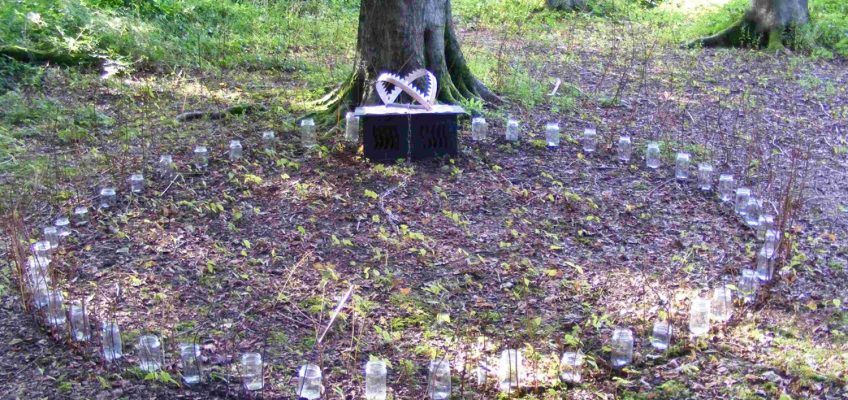

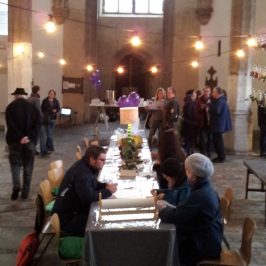
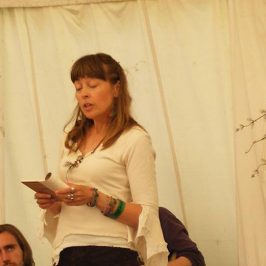
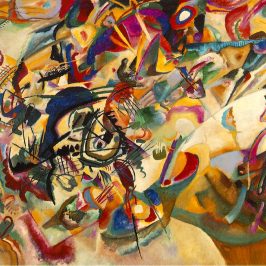
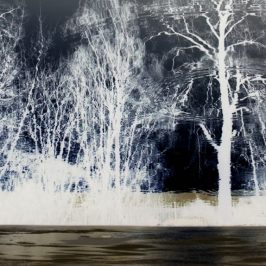
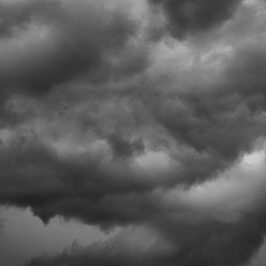
Leave a Reply